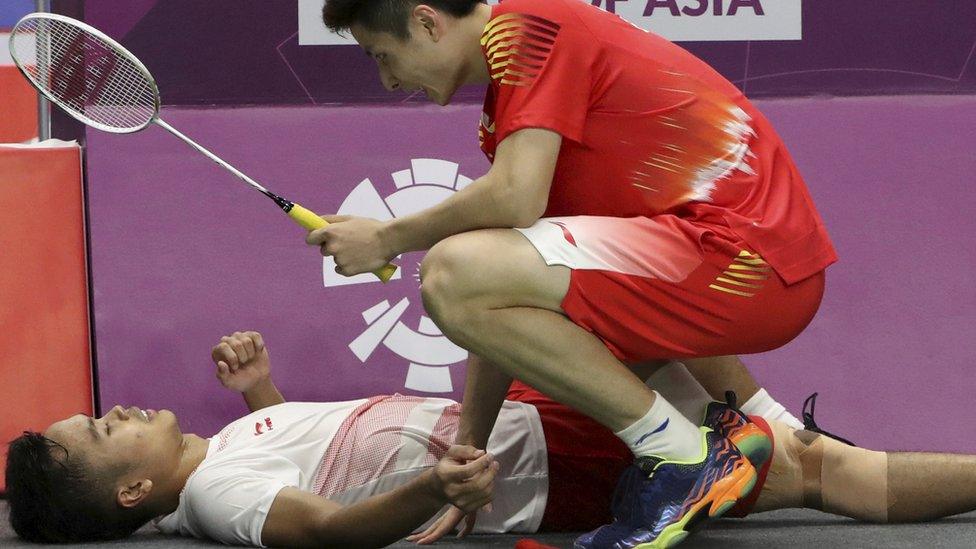Asian Games: Indonesia faces big bill after gold rush
- Published
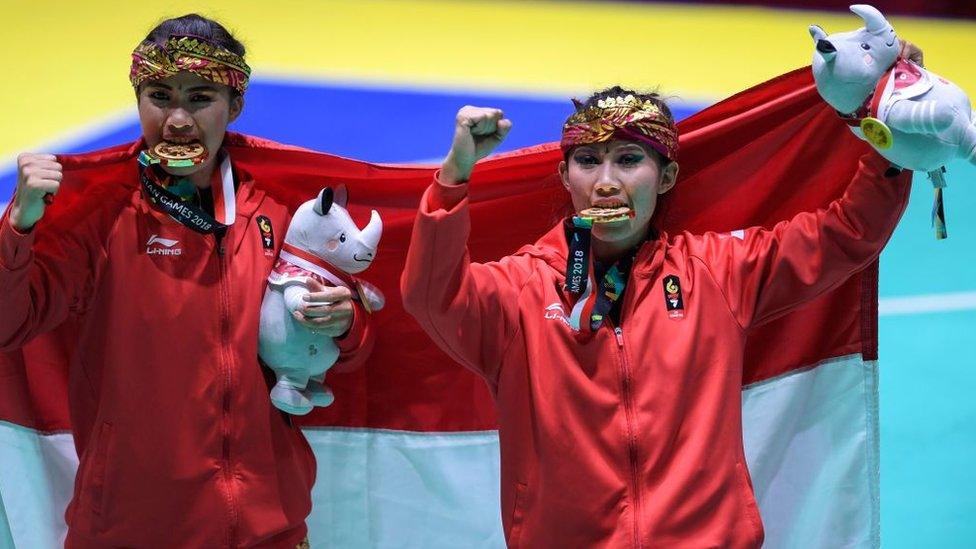
Indonesia has excelled in martial arts - Ni Made Dwiyanti and Ayu Sidan Wilantari being two gold winners
Indonesia's sports ministry is going to have find extra prize money after only budgeting for half the number of gold medals secured by its athletes at the Asian Games in Jakarta - with large bonuses offered including a pension and a house.
Indonesia has so far won 30 gold medals, mostly in martial arts.

Youth and Sports Minister Imam Nahrawi had previously promised a bonus of Rp1.5 billion (£78,000) for individual gold medallists, with those in team sports getting Rp1 billion (£52,000).
On top of that, they get a civil service job with a pension - and a house.
Indonesia had initially budgeted for only 16 gold medals - but that figure has had to be revised after such a strong showing at the country's home Games.
The bonuses for silver and bronze medallists "have been determined, but are still under discussion", Ministry of Youth and Sports (Kemenpora) spokesman Gatot Dewa Broto told BBC Indonesia.
Gatot denied rumours that the government requested donations to several private companies to help meet the bonus budget.
"If anyone declares that [the government] asking for donations is wrong, but if the private sector wants to give an appreciation to them [the athletes] please," he said.
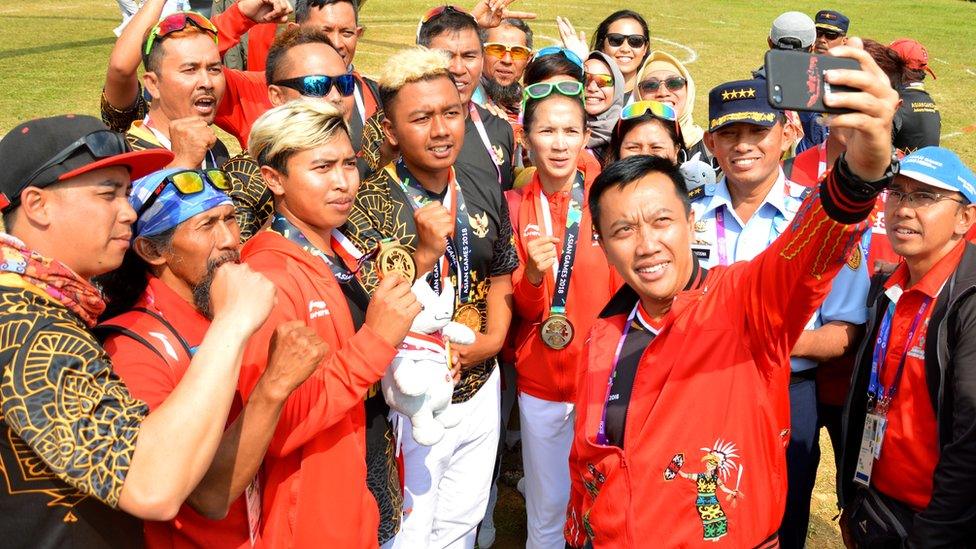
Minister of Youth and Sports Imam Nahrawi (holding phone) promised that payment will not be too late.
In addition to bonuses from the ministry, several gold medal winners at the Asian Games were also reported to receive prizes from the local government and private entrepreneurs.
Gold medal-winning rock-climber Muhammad Hinayah was promised a home by the Governor of South Sumatra, Alex Noerdin.
Meanwhile Lindswell Kwok, who won gold medal in wushu, was awarded a car by the Chinese automotive company Wuling Motors.
Chairman of Indonesian Wushu Airlangga Hartarto said that they had prepared three cars in total to give to outstanding athletes.
Tradition
Gatot said the amount of bonuses given to athletes at the 2018 Asian Games would be greater than previous competitions.
For example, he mentioned that at the 2014 Games in Incheon, Indonesia secured only four gold medals - the medallists winning Rp400 million (£21,000) each.
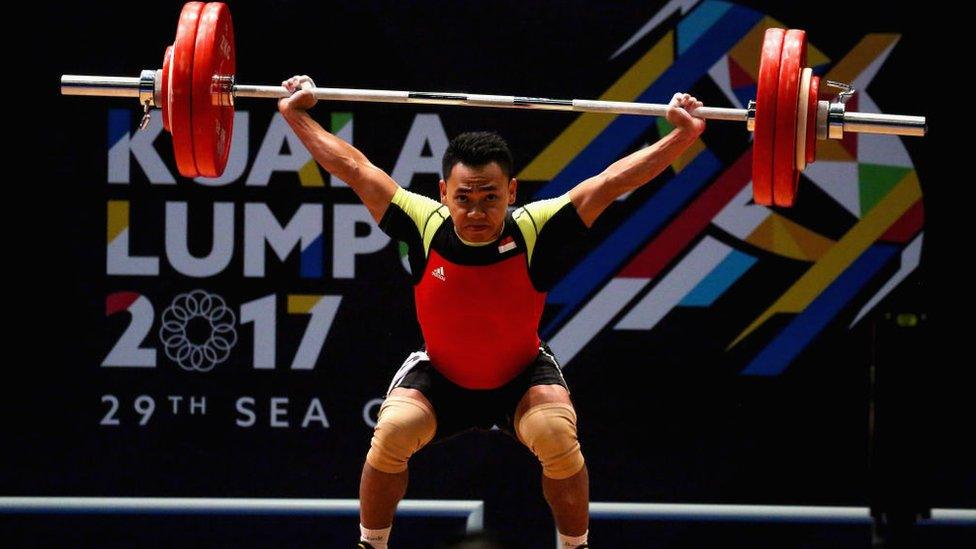
Eko Yuli Irawan said bonus money earned from the government was distributed "sincerely" to officials and other athletes who failed to get medals
The bonus money from the government is received by the athlete without tax deduction, Gatot said, with a separate reward for coaches.
In addition to money bonuses, the medal winners are also appointed as Civil Servants (PNS) in the Ministry of Youth and Sports (Kemenpora).
Weightlifting gold medal winner, Eko Yuli Irawan, said that it is usual for medal-winning athletes to set aside money for those who do not win.
"They are struggling too, so we share the fortune," he said.
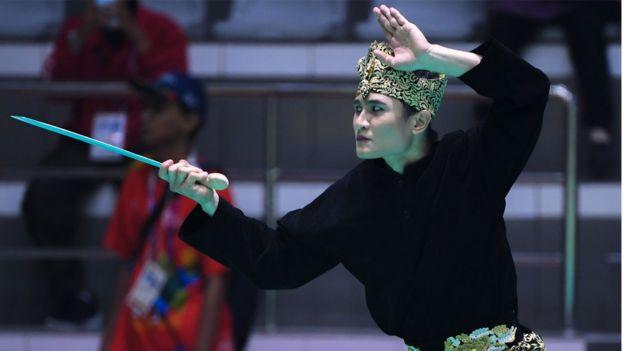
Sugianto scored Indonesia's 25th gold
The ministry does however have a record of paying athletes' bonuses late.
In July last year, it apologised to Indonesia's badminton men's doubles pair, Kevin Sanjaya Sukamuljo and Marcus Fernaldi Gideon, because the bonus promised to them as All England champions was paid late - by five months.
And gold medallist at the 2017 SEA Games, Eki Febri Ekawati, complained her accommodation costs were never repaid.
But Gatot Dewa Broto said this would not happen again.
"Directives from the sport minister - he got directions from the president - [prizes] must be given as soon as possible, not long, a few days after the Asian Games," said Gatot. "I'm sure this year will not not be [late]."
- Published18 August 2018
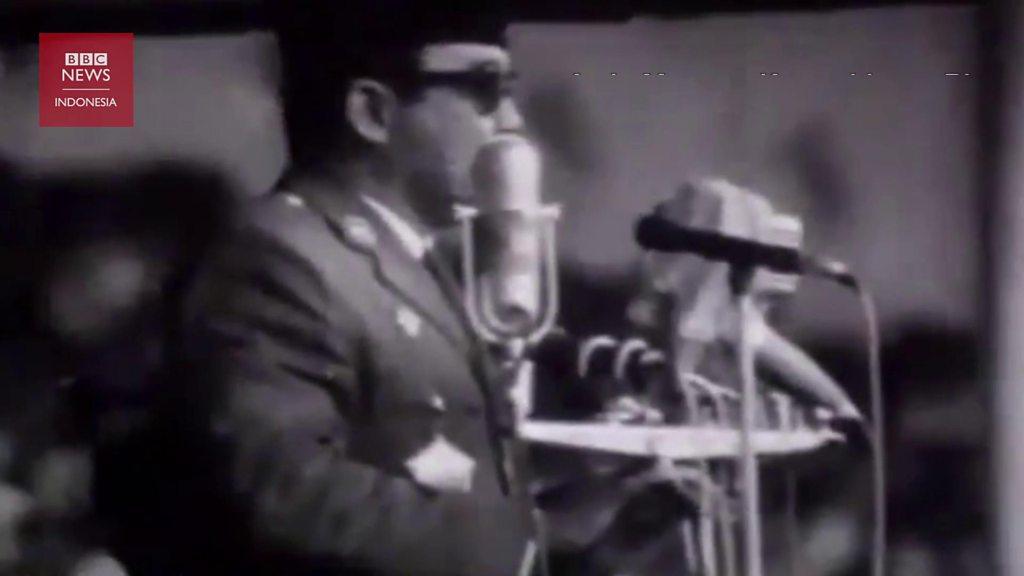
- Published20 August 2018
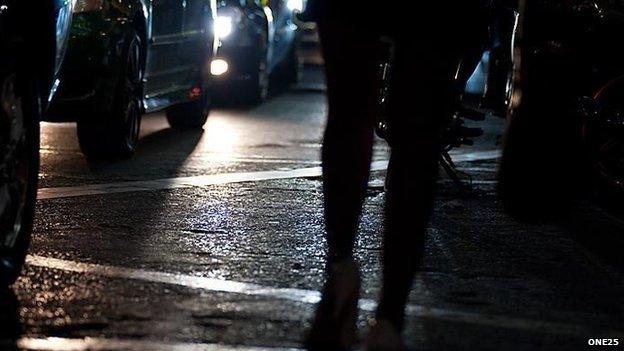
- Published30 July 2018
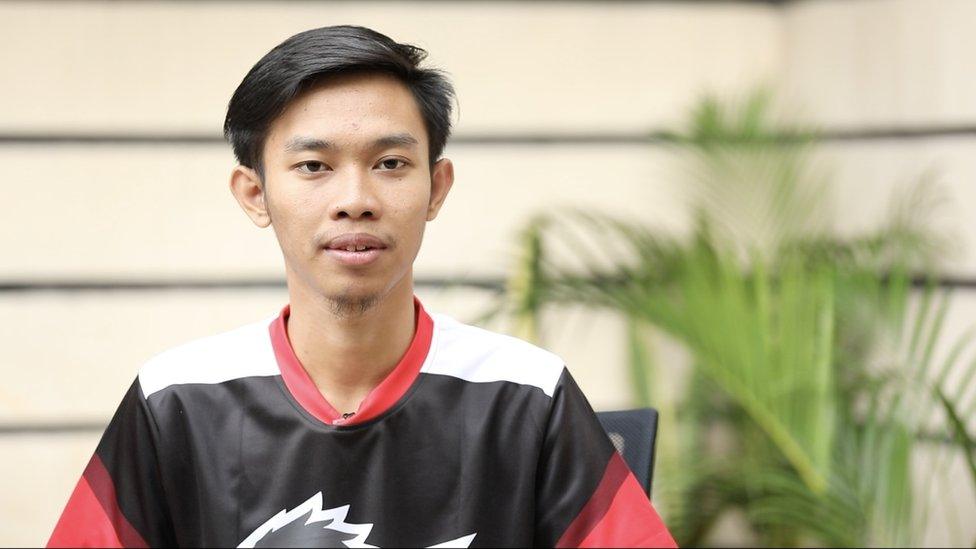
- Published23 August 2018
